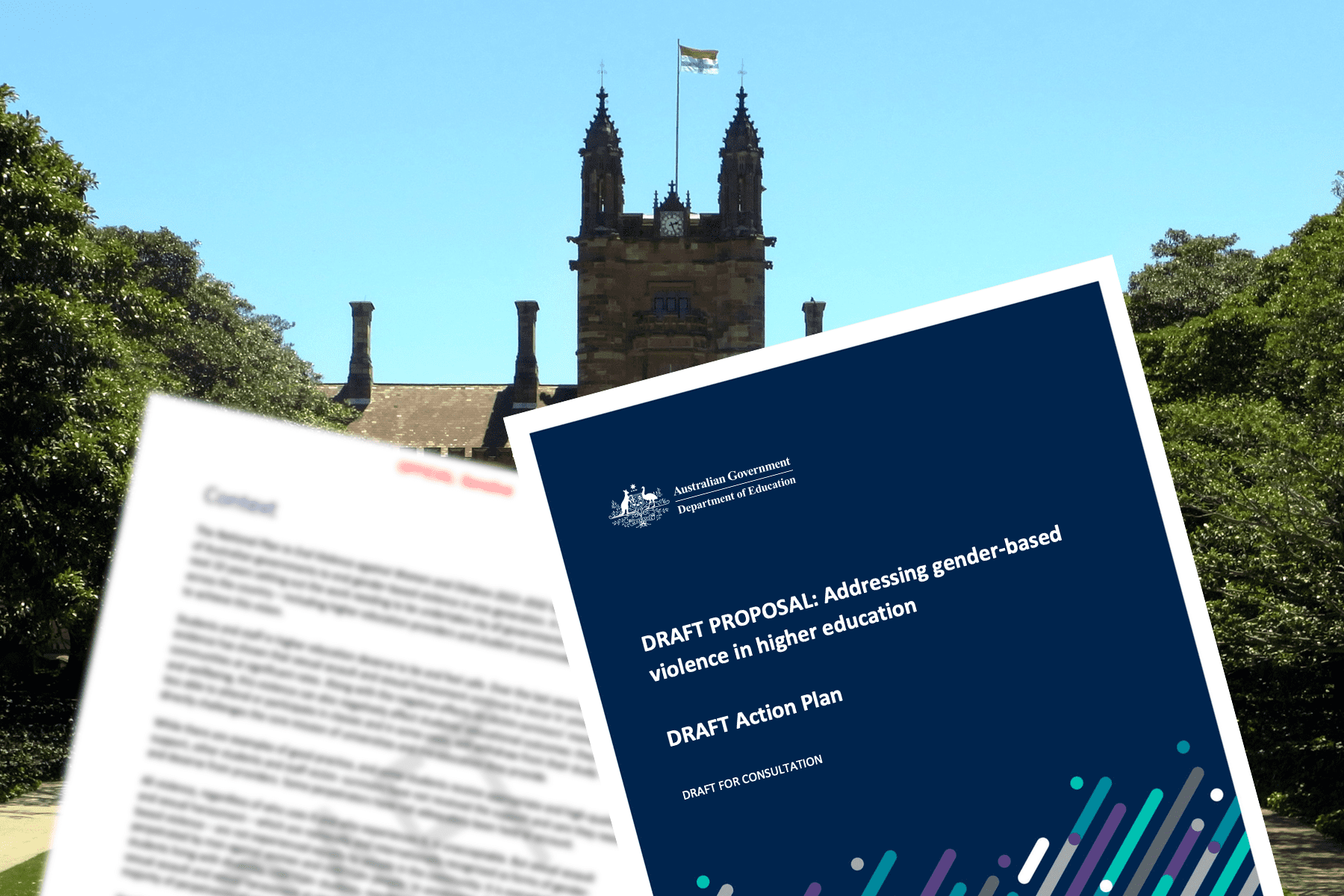CW: This article discusses institutional responses to sexual harassment and violence.
The Australian Government Department of Education has released a Draft Action Plan for addressing gender-based violence in higher education institutions. The plan has currently been released in a draft form for further consultation.
The introduction was welcomed by the National Union of Students, End Rape on Campus Australia, Fair Agenda, and The STOP Campaign in a media release. They stated that “the Plan has the potential to be transformative for students and victim-survivors; and to finally disrupt the system that has allowed universities and residences to put student safety and wellbeing at risk.”
The organisations emphasise that it “could deliver the systemic interventions so desperately needed, by providing: oversight and monitoring, transparency, an effective complaints mechanism, and actual accountability.”
The Plan recommends the introduction of a National Code to set requirements for the standards required for whole-of-institution approaches to preventing gender-based violence. The Code would include rules for evidence-based prevention education and activities, incident and reporting management, and student support, among other areas. Enhanced oversight and accountability requirements have been suggested for student accommodation providers alongside the Code.
The Plan proposes the establishment of a National Student Ombudsman, with specific powers for investigation and dispute resolution as a complaints mechanism for when students are not satisfied by their institution’s response. Other suggested powers include making recommendations to Vice-Chancellors or equivalent leaders about making changes to their policies and practices.
Complaints have previously been received by the Tertiary Education Quality and Standards Agency (TEQSA). It was revealed earlier this year that TEQSA had not proceeded with formal investigations for any of the complaints made about how universities have dealt with sexual violence since 2017.
The Action Plan seeks to improve transparency and accountability through requiring disclosure of data and annual reporting requirements. This includes parliamentary reviews of the complaints received by providers, student surveys and regular consultation about the progress of the Plan.
The USyd SRC Sexual Harassment Officers told Honi that “This a significant step in the right direction and should be welcomed by Universities. Mandatory disclosure of the number of reports of sexual violence that Universities receive and the outcome of these reports will force Universities to take sexual violence seriously. Furthermore, having a mechanism for victim survivors to hold their Universities accountable for failing to respond adequately to disclosures of sexual violence is essential. Activists have been calling for independent oversight for decades now, and this measure moves towards that in a big way.”
“However, it is concerning that an ombudsman, while having the ability to make reports and to inform Universities on their shortcomings, may not be able to enforce its recommendations. It may not have enough influence on university management who have shown themselves to be incapable of addressing the issue of sexual violence.”
The plan was produced by the Department of Education’s Gender-Based Violence Stakeholder Reference Group, which included national advocates on sexual violence and representatives from universities, Universities Australia, colleges and other student accommodation providers.
The ongoing participation of universities and colleges in the consultation process has been of concern to activists. The Sexual Harassment Officers said that “It is also puzzling that the plan to deliver independent oversight of University responses to sexual violence has now been opened for feedback from Universities and residential colleges, the very stakeholders that benefit by avoiding accountability. We worry this consultation may weaken the action plan.”
“Implementation of the action plan should be welcomed and the activists like EROC who helped it come to fruition should be congratulated but it does not replace the urgent need to abolish the USYD colleges.”
If you need support, please contact the Safer Communities Office on 8627 6808 or by email at safer-communities.officer@sydney.edu.au, or 1800 Respect on 1800 737 732





